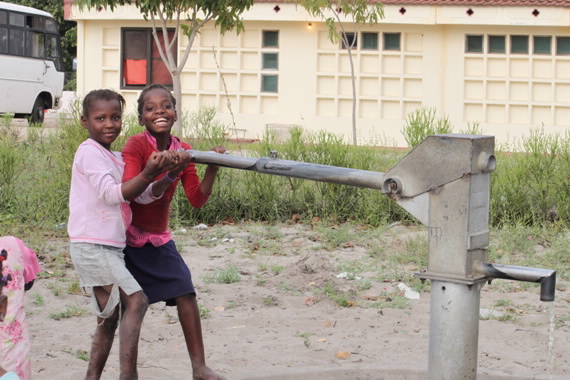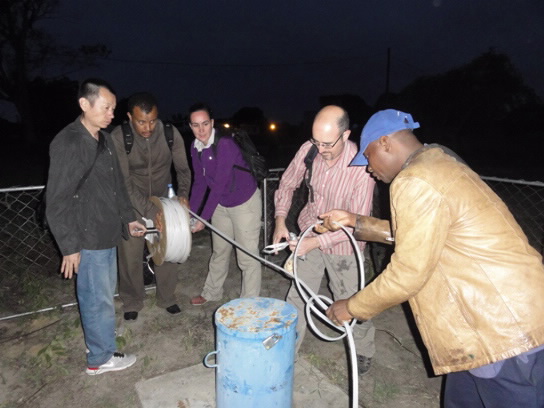Mozambique is located on the east coast of southern Africa and is considered one of the emerging economies of the region. It's also a country that's trying to repair the damage done by years of civil war, including one of the most basic of necessities - access to clean drinking water.
Dr Dioni Cendón is a senior research scientist in ANSTO’s Institute for Environmental Research (IER). He recently returned from a field trip to Mozambique where he was training researchers in the region and also helping them to investigate the source of groundwater salinity in Maputo – the country’s capital.
Groundwater in the Indian Ocean port city plays a vital role in the daily lives of its estimated 2 million inhabitants, but there are growing fears salinity might be threatening available supplies.
According to the Central Intelligence Agencies World Factbook, the agriculture industry makes up to 29 per cent of the country’s economy with up to 80 per cent of the population still working in this sector.
“Preliminary results suggest seawater is not the culprit,” Dr Cendón said
 |
| Most Mozambicans depend on shallow groundwater supplies pumped to the surface by hand for use in their daily lives.Credit: Randy Stotler, Kansas Univeristy. |
“Groundwater stable isotopes results show two well defined groups of results with deeper samples showing lower values than shallower samples. Whether this represents mixing of locally recharged water (rain) with groundwater recharged further inland is too early to say, but it does indicate a complex recharge process,” he said.
The hydrogeochemist’s ongoing work was thanks to the support of several funding sources, including ANSTO,UNESCO , The International Union for Quaternary Science (INQUA) and The International Council for Science (ICSU), and also a number of novel nuclear science techniques used at places like ANSTO.
Most Mozambicans depend on shallow ground water supplies pumped to the surface by hand, so ANSTO’s ability to trace the movement of water using isotopic and nuclear techniques helps water resource managers make more informed decisions about one of the key sources of nourishment for the country.
“We used a number of isotopic techniques, including: tritium, carbon-14. By looking at the decay of those isotopes we are able to find out some things about how long the water has taken to get into the soil from rainfall to the time when you get it out of the well,” he said.
“Groundwater in many African countries is the only way they can access water, partly as a result of variations in climate and also because they don’t have the infrastructure to access surface water.
“In some cases, it's the only water they have access to, apart from surface water found in rivers, which is more susceptible to contamination,” said Dr Cendón.
Nuclear and isotope methods are useful in regions like Africa where more traditional hydrologic tools give ambiguous results, or are too costly to be applied.
 |
| A multi-national team effort from L-R: Prof Jianyao Chen (China), Dr Seifu Kebede (Ethiopia), Dr Joidi Miller (S Africa), Dr Dioni I Cendon (Australia) and Salif Kone (Mali) packs away groundwater sampling equipment at a site north of Maputo (Mozambique). Credit: João Mugabe (Eduardo Mondlane University, Mozambique). |
Groundwater studies in the Sahel region
ANSTO is contributing to a number of worthy missions in Africa with the help of nuclear science and technology, most notably the Sahel region, which is home to more than 50 million people and facing a recurring food and nutrition crises.
According to the Food and Agriculture Organization of the United Nations, among some of the most affected are the region's estimated 16 million pastoralists — livestock-reliant people who regularly move their families and animals in search of water and pasture.
IER expressed interest and willingness to participate in the Sahel Project run by the IAEA’s technical cooperation programme and aimed at supporting the rational and sustainable management of shared groundwater resources.
Researchers involved in the project will contribute by providing training to personnel working in the Sahel Region to support the use of isotope techniques in the assessment and management of groundwater resources, which would significantly contribute to capacity building in the region.
Published: 14/01/2014


